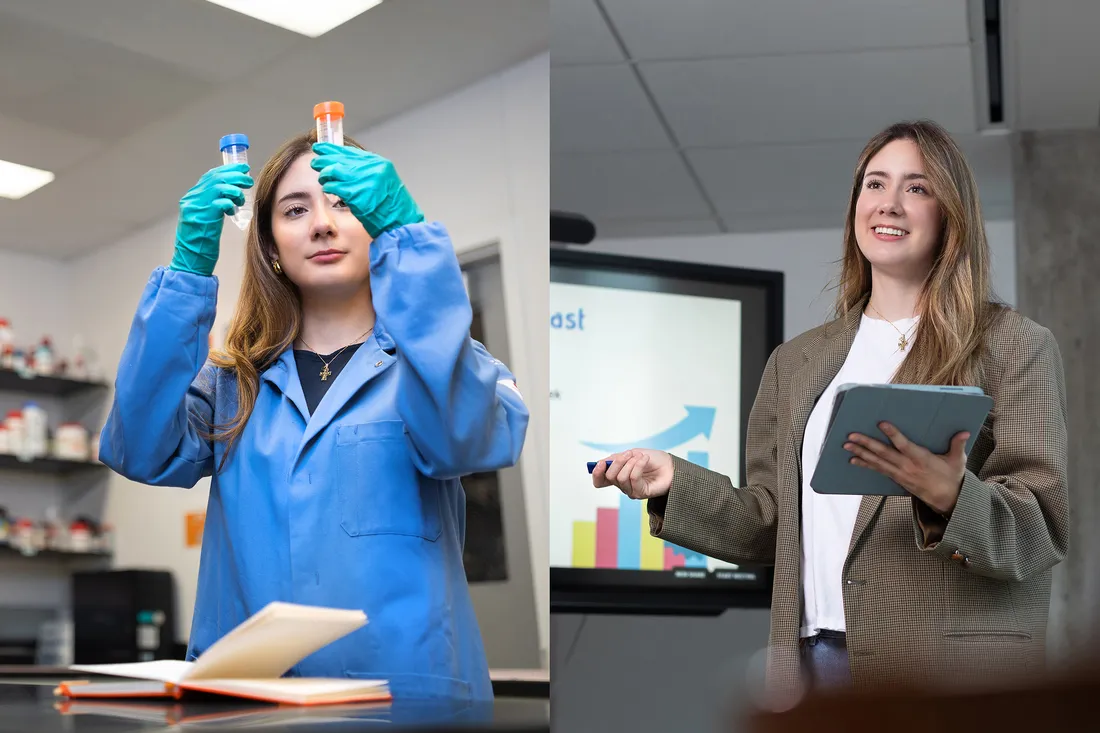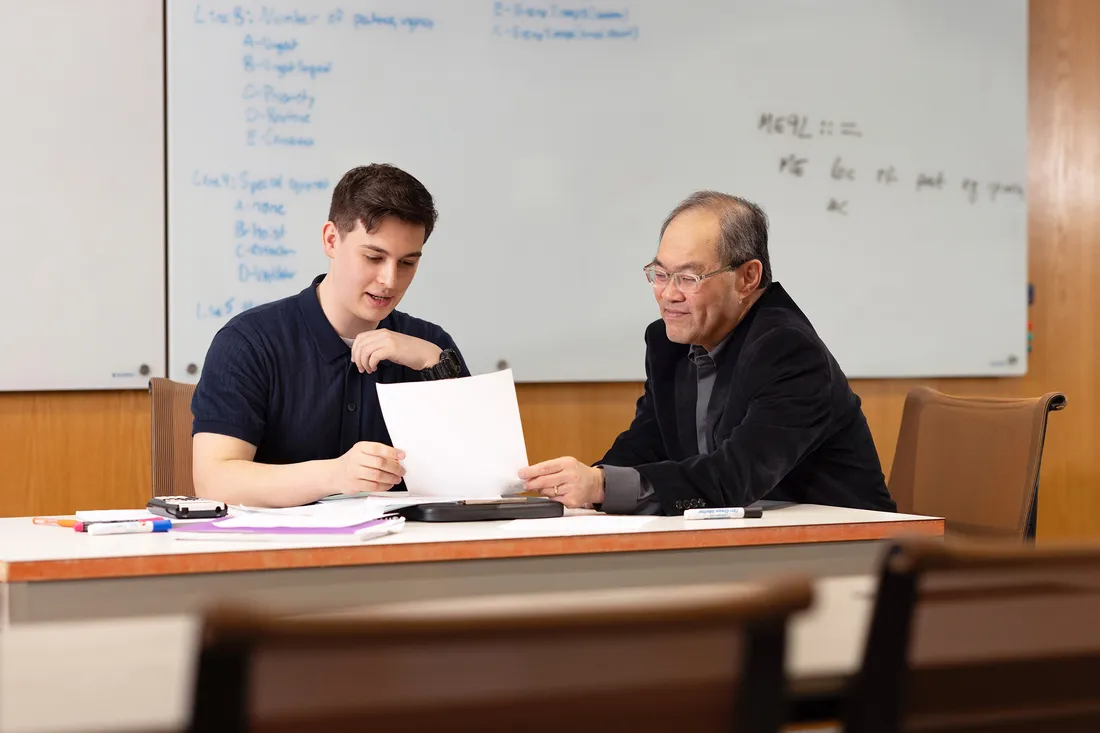
Professors like Saba Siddiki (third from left) in the Maxwell School of Citizenship and Public Affairs embrace a student-inspired approach to teaching.
For George Theoharis, teaching is more than a job; it’s a reflection of his students’ influence. “They represent who I am as a teacher,” says the Syracuse University School of Education professor. “They mirror my behavior, attitude and approach.”
The University is filled with teachers like Theoharis who foster mutual respect in the classroom. Studies show that a strong student-faculty connection leads to academic success and personal satisfaction. It also increases the value of a Syracuse degree.
Infectious Wonder
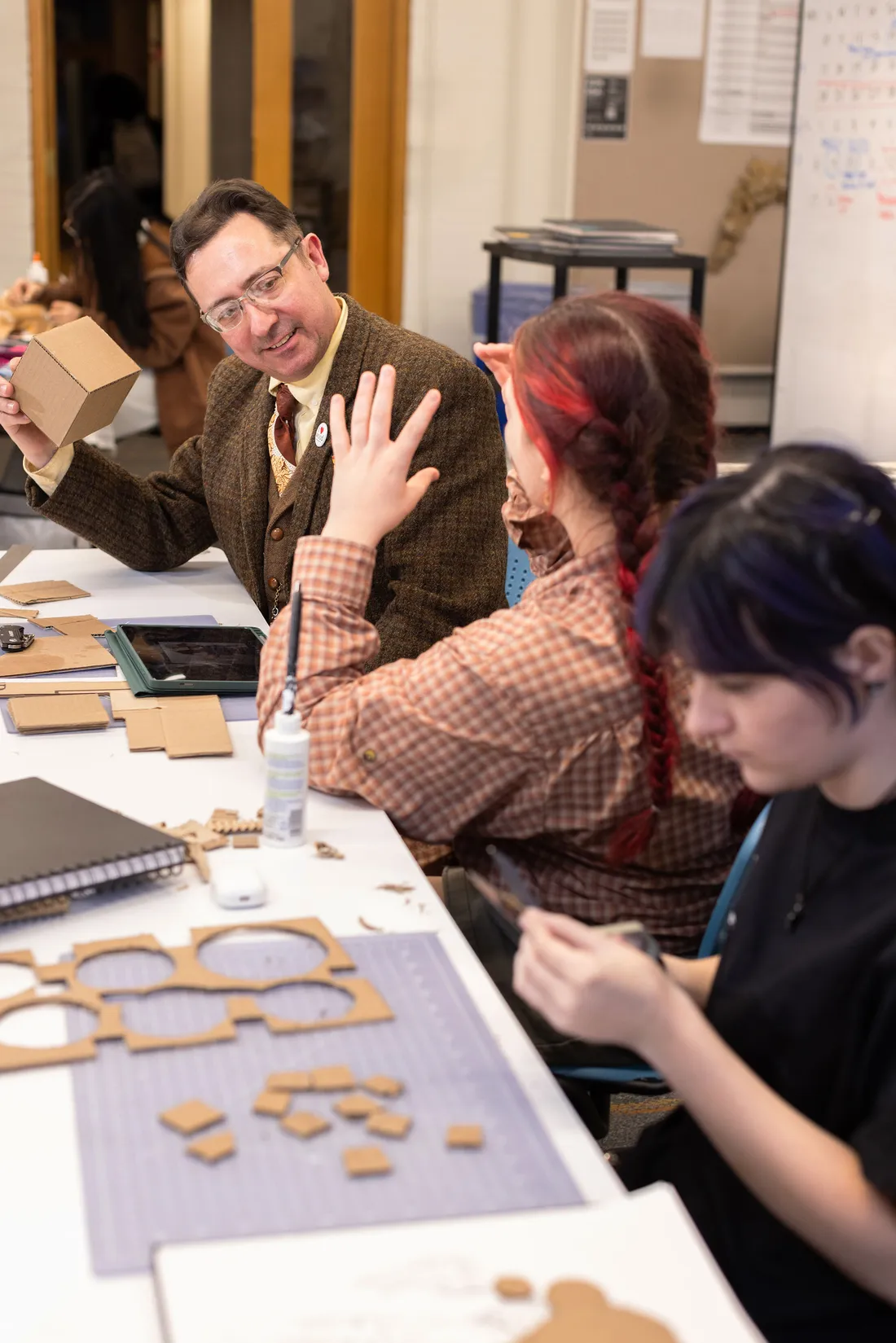
Professor Zeke Leonard wears multiple hats in the School of Design, including program coordinator for the First-Year Experience. “The first year is a beginning point, a new chapter in students’ development,” he says.
Zeke Leonard is a fixture in the College of Visual and Performing Arts, where he is an associate professor and associate director of the School of Design. Leonard also is the school’s First-Year Experience coordinator, shepherding more than 120 new designers through their initial months on campus.
“I love working with students as they navigate their first year. The early weeks are charged with energy, optimism, hope and excitement. I’m inspired to see them learn, take responsibility and, in some cases, question their identity.
“For many, getting into the School of Design marks the culmination of years of training and preparation. But it’s also a beginning point, a new chapter in their development. The feeling of wonder that first-year students have is infectious. It brings me delight.”
Instruments of Change
Associate professor Matthew Mulvaney mentors a wide range of students in the David B. Falk College of Sport and Human Dynamics, where he chairs the Department of Human Development and Family Science. Mulvaney particularly enjoys working with undergraduate researchers who tackle issues of “deep, personal interest.”
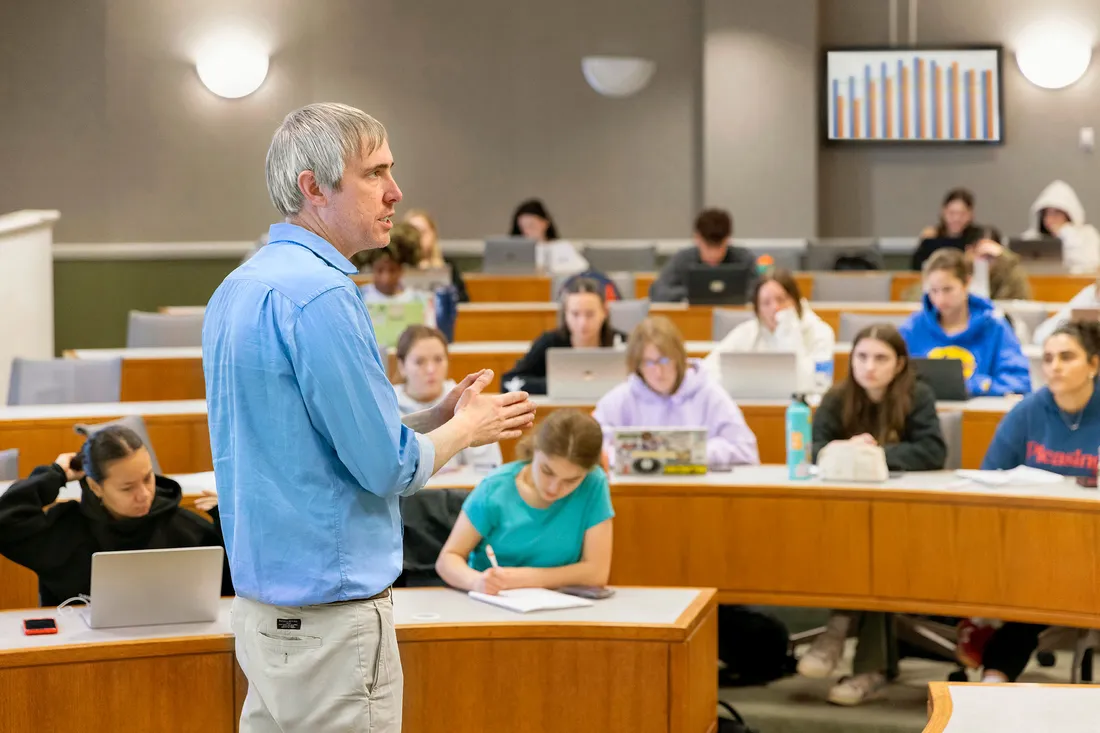
“Watching students evolve as scholars and as individuals gives me hope for the future,” says Matthew Mulvaney, associate professor and chair of human development and family science.
“It’s gratifying to see them work through problems and then develop projects that are thoughtful and informative. Therefore, I’m often reminded about the importance of research—how it can harness a person’s potential and make a difference in society. My students’ capacity for hard work never fails to inspire.”
“Their energy and passion are especially evident in our first-year introductory courses, which I help teach. Watching students evolve as scholars and as individuals gives me hope for the future. They’re not just smart and hard working; they’re also committed to improving the human condition. Our students are instruments of change.”
Cultivating Excellence
Professor Saba Siddiki directs the Master of Public Administration Program, where students prepare for careers in public affairs. “Working with them—in the classroom and through doctoral student advising—is one of the highlights of my job,” says Siddiki, who also serves as the Chapple Family Professor of Citizenship and Democracy. Based in the Maxwell School of Citizenship and Public Affairs, she marvels at her students’ commitment to public service and community building.
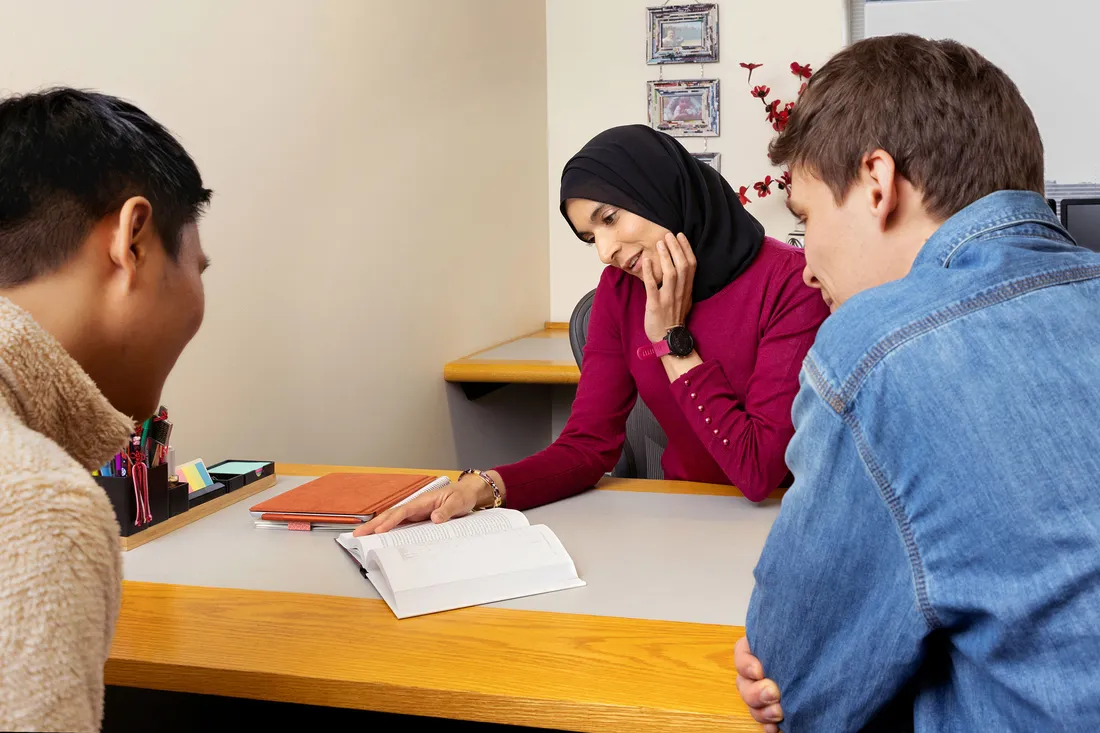
“My students inspire me to be clear and effective in my instruction and research,” says Siddiki, who directs the Master of Public Administration Program.
“My students inspire me to be clear and effective in my instruction and research, to consider course topics and approaches from different perspectives and to continually reflect on and appreciate different pathways through which we pursue our academic and professional objectives.
“With this inspiration, I regularly pursue ways to become a more impactful teacher and researcher. I also cultivate learning environments and opportunities that help my students thrive and achieve their professional goals.”
Finding Their Footing
George Theoharis is a professor of both educational leadership as well as inclusive childhood education. The former K-12 teacher and principal estimates that he’s trained nearly a thousand undergraduates. “I love it,” he exclaims. Some have been selected as Syracuse University Scholars; others have co-authored articles with him as Ph.D. students here and at other institutions.
“They teach me a lot about myself and why I do what I do at Syracuse. Helping students find their footing as undergraduates—teaching and mentoring them—is just as rewarding as learning from their experiences, perspectives and analyses. Working with future teachers of color, especially women interested in school leadership, has exposed me to a new, sustained area of scholarship.
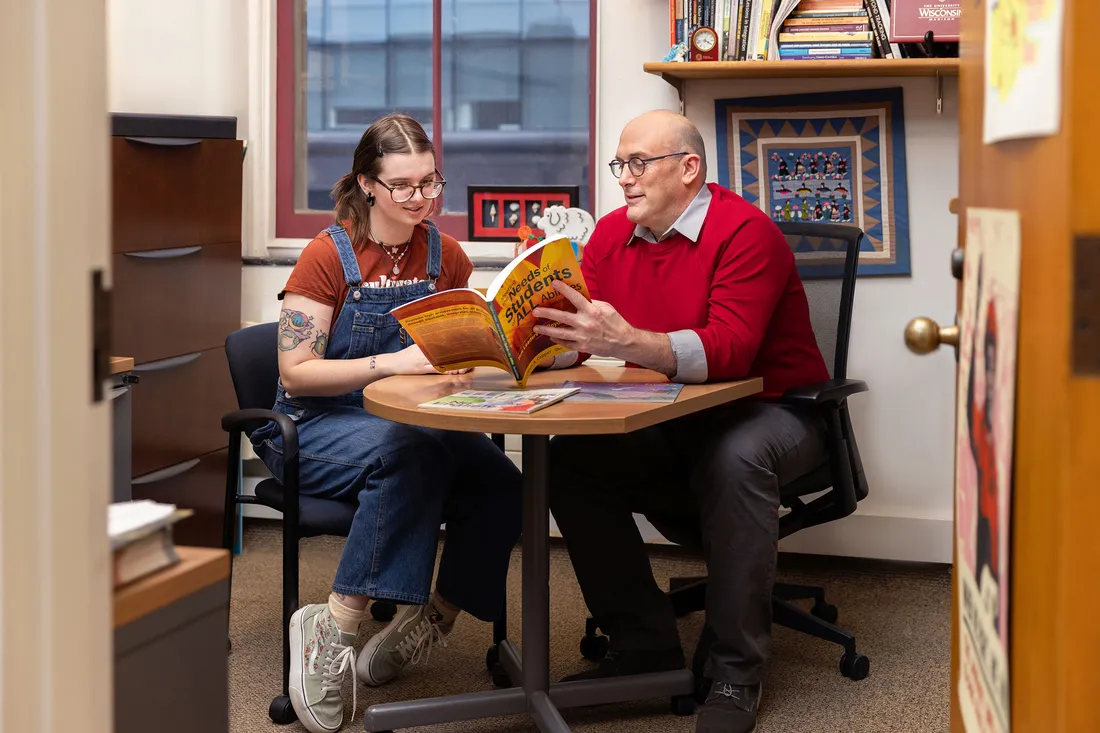
Professor George Theoharis says that working with future teachers has inspired him to pursue a “new, sustained area of scholarship.”
“This has spilled over into my involvement with the Honors Program and the Syracuse Office of Undergraduate Research and Creative Engagement, both of which have awarded my students a significant number of grants.
“For instance, numerous students of color have compelled me to change how I teach and think about issues of social justice and inclusion. It’s made me a more thoughtful and deliberate mentor.”

